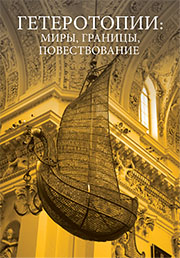Вильнюс как «другое пространство» в русской литературе
Vilnius as “another place” in the Russian literature
Author(s): Pavel LavrinecSubject(s): Anthropology, Architecture, Russian Literature, Post-War period (1950 - 1989)
Published by: Vilniaus Universiteto Leidykla
Summary/Abstract: This article considers the essential features of Vilnius representations, constructed in Russian literature. These features express different aspects of Vilnius as heterotopic and heterochronic “another place”, which is characterized by its own specific laws of passage of time and behaviour scenarios. The materials for research are prosaic and poetic works, as well as travel essays and memoirs in Russian, created after World War II. Vilnius is portrayed in these works as not Soviet or not entirely Soviet city, obviously not as Russian city, it is different, but it is not strange. The city has different architectonics, mainly because of medieval streets and courtyards network, Gothic and Baroque architecture, plenty of heterodox churches, unusual names and multilingualism. These features of Vilnius allow describing it as moderately exotic and fabulous. In “another place” of Vilnius, the past and the present coexist and intertwine. Presence of the past is reflected in the motives of memory and ancient times of the city, as well as its individual components – streets, houses, churches. Special locus in which the past does not disappear, but continues to exist, admits the possibility of returning to the past or the returning of the past. Vilnius related narratives are stories of return – the return to the Vilnius area, the return to the memory of the cultural tradition, to the memory of an individual or the historical past, the return to the true values.
Journal: Literatūra
- Issue Year: 57/2015
- Issue No: 5
- Page Range: 274-284
- Page Count: 11
- Language: Russian

